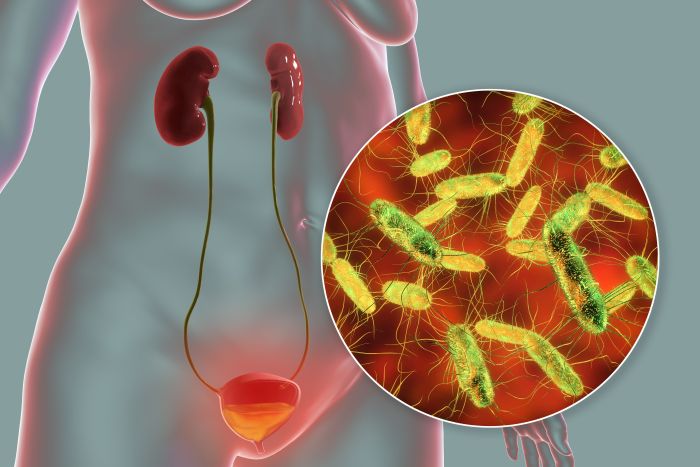
Complete removal of pubic hair may lead to recurrent urinary tract infections, Polish scientists from the Jagiellonian University Medical College have found. 2,400 women participated in the study, and the results were published in Scientific Reports.
Urinary tract infection (UTI) is one of the most common infections. It is estimated that half of women in the world have experienced such an infection at least once in their lives, and a significant proportion suffer from regularly recurring infections (even three times a year).
Although most UTIs are caused by one species of bacteria - Escherichia coli - they can also be caused by other bacteria and fungi. Treatment, however, is becoming more and more difficult due to the growing problem of antibiotic resistance.
Various forms of pubic hair removal have been practiced in many cultures for centuries. However, since the mid-1990s, extensive or complete removal of pubic hair has become a common practice in many Western societies. Both women and men depilate, but women do it much more often and declare that they do it for hygiene reasons.
'For many people, the removal of pubic hair has become an indispensable part of personal hygiene. Yet, it turns out that we need to rethink our perception of what is clean and hygienic. Our results have shown that pubic hair can play an important part in protecting the body against harmful pathogens,’ says Dr. Andrzej Galbarczyk from the Faculty of Health Sciences at the Jagiellonian University Medical College in Kraków.
The authors of the study are surprised to find no studies showing that removing pubic hair could affect the risk of urinary tract infections. They emphasize that they are the first to prove such a link.
They drew inspiration from a study conducted on bearded health care workers. It turned out that their facial hair was not a common habitat for dangerous bacteria, as one might expect. Surprisingly, staphylococcus colonies were three times more likely to be found on the faces of their shaven colleagues. What's more, beards were colonised by bacteria that produce substances hindering the growth of pathogenic bacteria.
'If facial hair is so beneficial to the owner’s health, it seems that the hair growing in the lower part of the body should have similar properties. In fact, beards and pubic hair have a lot in common - they start to grow during puberty and look almost the same,’ Galbarczyk says.
The researchers prepared an online survey titled 'Women's Intimate Health and Well-Being Survey'. They invited women aged 18-45 to complete it and 2,400 did.

The questionnaire collected information on age, medical history (age at which the first urinary tract infection occurred, undergoing surgery on the urogenital system in the last 12 months, diagnosis of diabetes) and sexual practices (use of spermicides, having a new sexual partner and the frequency of sexual relations, sexual intercourse in the last 12 months). Participants were also asked to report their pubic hair removal and care practices (grooming frequency and amount of pubic hair typically removed over the past 12 months).
As many as 67 percent of women said that they regularly shaved all their pubic hair.
'Taking into account such factors as age, sexual activity, use of spermicides, and history of previous urinary tract infections, we have found that although those women who totally removed their pubic hair did not differ from others in terms of the risk of suffering from at least one urinary tract infection a year, they were three times more likely to suffer from recurring urinary tract infections, occurring three or more times per year, the study authors said.
They added that the group of women who took part in the study (only Polish women) was too homogenous to translate the results to other populations. They also believe that subsequent research should be supplemented with information on perineal hygiene habits and medication, probiotics or natural products use. (PAP)
Urszula Kaczorowska
uka/ zan/ kap/
tr. RL













